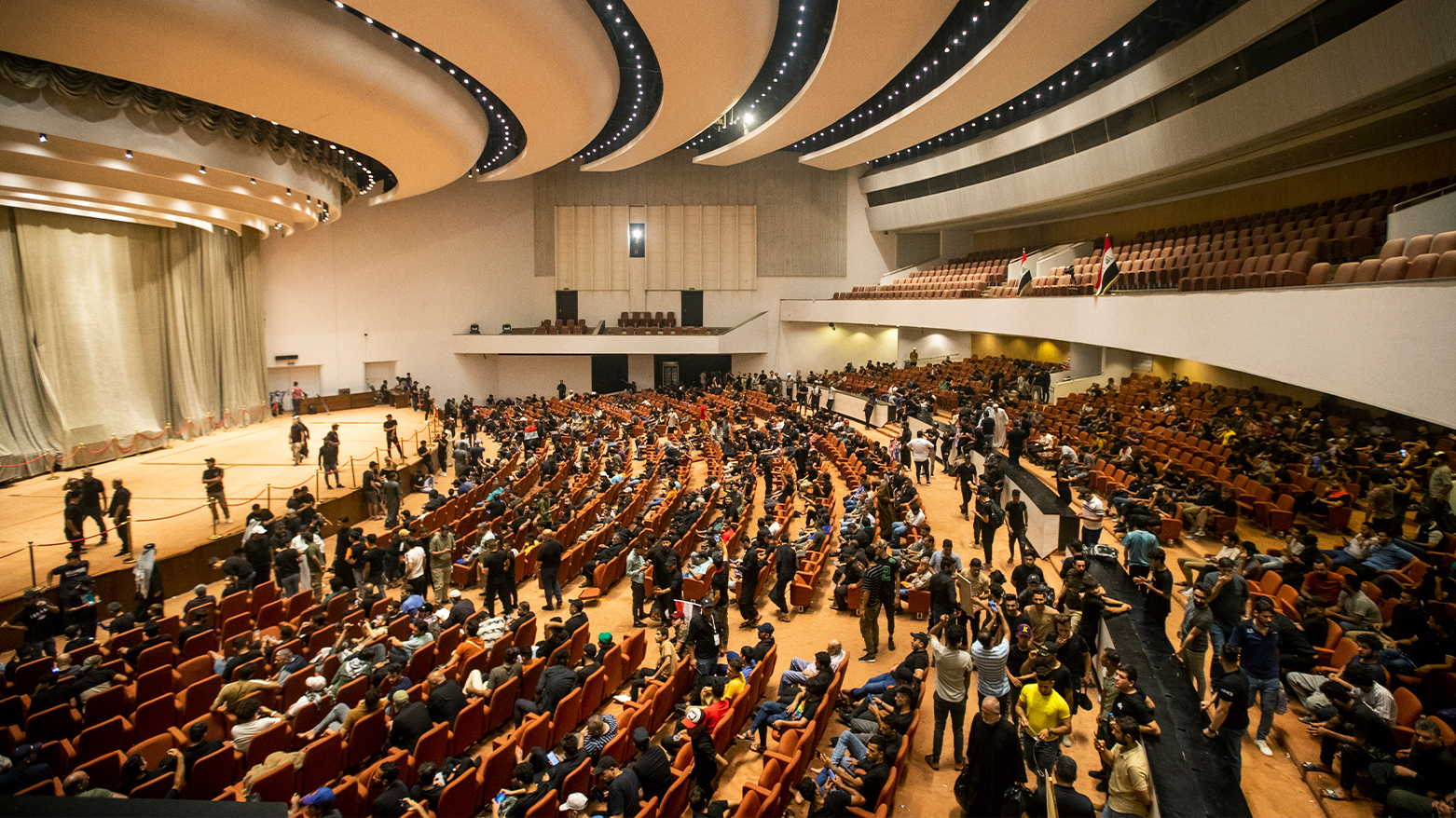Current Iraqi Parliament Deemed Weakest in History: Public Opinion
Public perception is that the current parliament lacks a supervisory role in monitoring the government's performance, including the actions of ministers and other officials.

ERBIL (Kurdistan24) - The current Iraqi parliamentary term is widely perceived as the weakest in its history, with public opinion pointing towards its diminished oversight role due to the dominance of certain political parties.
Experts attribute this weakness to the high number of replacement members who assumed office after the withdrawal of the Sadrist movement, and the alleged susceptibility of the acting speaker to the influence of powerful factions within the parliament.
Public perception is that the current parliament lacks a supervisory role in monitoring the government's performance, including the actions of ministers and other officials.
Moreover, many citizens criticize the laws enacted or under discussion as being primarily self-serving and not in the interest of the public.
One Baghdad resident shared with Kurdistan24, "This parliamentary session is nearing its end, and yet there hasn't been any questioning, evaluation, or reports issued regarding any official, or head of commission. This is what makes this session so forgettable."
Another citizen voiced frustration, "This parliament has failed to deliver, especially for us graduates. They haven't provided us with any opportunities or fair treatment. Even their laws are generally controversial, like the law on the Personal Status Law. These laws harm the people instead of benefiting them."
Experts believe the current parliament's ineffectiveness stems from the large number of substitute representatives who replaced the withdrawn Sadrist members. These substitutes are seen as more susceptible to control by dominant parties within the parliament.
Political observer Faisal Ali commented, "This is truly the weakest parliamentary session, considering that many members are substitutes due to the Sadrist movement's withdrawal. A substitute is not the same as the original, and the acting speaker, even if not directly in charge, is constrained. There are political forces that brought him to this position, making it likely for him to be lenient in the laws passed."
Despite being in its penultimate year, public opinion overwhelmingly views this parliamentary session as the weakest in terms of oversight, with some parties exerting significant control over the council's legislative capabilities and pushing laws that align with their own interests.
Further reporting was done by Kurdistan24 correspondent in Baghdad Seif Ali.